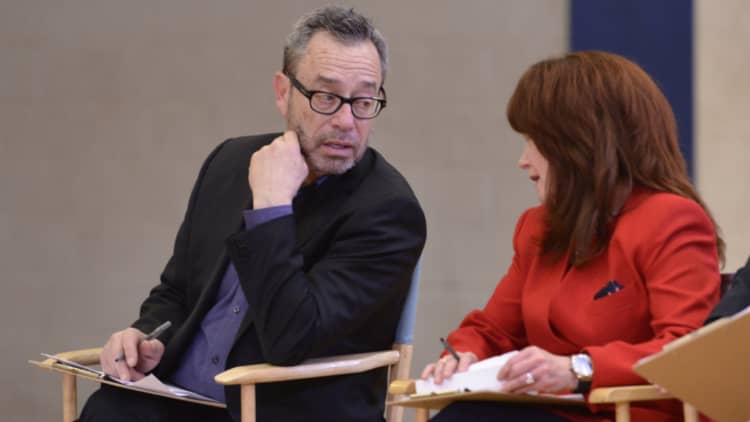Start-up founders know the struggle. They juggle strategizing, managing and hiring amid other operational tasks, all while potentially working to raise outside capital.
With that much of a day's time committed to the inner workings of a new company, there's usually little time left to focus on investor relationships. But for Alan Glazen, a millionaire entrepreneur-turned-investor starring on CNBC's upcoming show "Cleveland Hustles," a start-up's success hinges in large part to effectively working with investors.
"If you're not willing to [listen] or you're just going to pander to them, you're going to fail," Glazen said. "And the relationship between an entrepreneur and an investor is the most fragile relationship there is. ... You need to follow people that are willing to be honest with you and that have been there."
Since selling his 35-year-old eponymous advertising company, Glazen has been sitting on the other side of the table, investing in Cleveland-area start-ups, including restaurants and bars that he says have all returned his initial investments.
As an investor, once he's sold on someone's vision and ability, he tries to be hands off.
"I let them do their thing," he said. "When I've made a mistake in the past it would be imposing my will and my vision and my experience too much on their actions. So it takes a great restraint to pull back from doing that."
But knowing when to show restraint and how much isn't always clear cut. In one Bar-Ilan University study, which looked at the relationships of 120 Israeli start-ups and their VCs, strategic involvement from investors (measured by serving as a sounding board or developing network ties) contributed positively to a sense of cooperation, whereas managerial involvement from VCs (measured by hiring key managers and setting priorities) was found to be negatively associated with entrepreneurs' confidence in investor cooperation.
Outside of stepping in to help newer entrepreneurs avoid business pitfalls, Glazen generally avoids the heavy-handed approach — and sees positive results.
"Now and then it works out better than had you done it yourself," he said. "So learning how to restrain yourself a bit and trust and cheer on the people you're backing is a lesson that I've learned."



